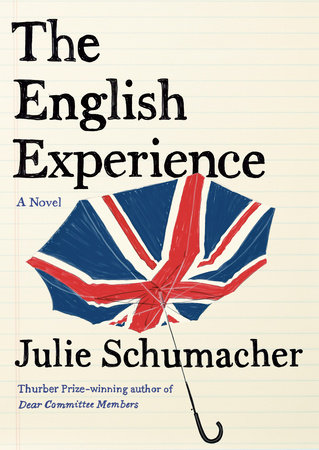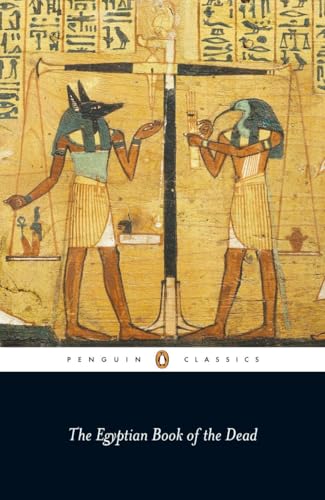
 If you have ever been—or think you’ll ever be—a burned-out professor, pick up a copy of Julie Schumacher’s new novel The English Experience. To those already familiar with Schumacher’s oeuvre, the book closes out her collegiate trilogy (begun with 2014’s Dear Committee Members and continued in 2018 with The Shakespeare Requirement). However, The English Experience works perfectly as a standalone novel, presenting readers with a hilarious and rigorous syllabus of academic discontents.
If you have ever been—or think you’ll ever be—a burned-out professor, pick up a copy of Julie Schumacher’s new novel The English Experience. To those already familiar with Schumacher’s oeuvre, the book closes out her collegiate trilogy (begun with 2014’s Dear Committee Members and continued in 2018 with The Shakespeare Requirement). However, The English Experience works perfectly as a standalone novel, presenting readers with a hilarious and rigorous syllabus of academic discontents.
The novel reunites us with Schumacher’s sarcastic and inert Jay Fitger, a professor at a small liberal arts college in the Midwest, who has been tapped, at the last minute, to lead a group of first-year students to London for a winter term abroad. But Fitger is burned out, to put it mildly. He’s spent far too many years in a system that barely notices him and is still in the thick of grading last term’s finals. The prospect of squeezing in a trip to a city that he hates (it reminds him of his ex-wife and the disappointing time they spent there a decade ago) is not exactly enticing.
Not lost in him is the fact that he’s been chosen for the role because he doesn’t really have anything else going on. During a one-way conversation with the provost, Fitger sees “a slip of paper with a list of names [on the provost’s desk], all of them crossed out except for his own, at the bottom.” The provost, sensing Fitger’s reluctance, reminds him that the department budget requests are soon to be reviewed. Trapped, Fitger agrees to the trip and begins to sift through the student applications.
To great effect, a variety of student writings intersperse the narrative and show us exactly what Fitger is up against. The papers are rife with blubbering composition, vague thesis statements meandering toward banal epiphanies, flimsy Wikipedia citations, and template language that should have been deleted (“Begin your letter with an appropriate professional Dear Payne Experience Abroad Office…”). Like Fitger, we can’t help but glaze over as we trudge through the dross, only perking up with the appearance of some zany syntax or inadvertently amusing digressions. Even the students’ basic reading comprehension skills are up for debate; one of them writes in his application that he is “totally psyched about our January trip to the Cayman Islands.”
Eventually, a cohort is assembled, and Schumacher deftly builds comic tension as Fitger leads the student ensemble to London for a tour of its storied sites. They visit the Tate Museum, see Buckingham Palace, and take trips to Stonehenge and Bath. The students—among a couple who broke up shortly before the trip, a woman who spends the excursion pining for her cat, and a pair of twins that Fitger can’t tell apart—end up plainly running the show. During an initial outing, one student quietly detaches himself from the group and absconds to Paris. Fitger is too sapped to wrest back control. Citing largely bogus maladies, even he forgoes a number of initial outings and plants himself on his hotel bed, looking up at the wet spot on the ceiling that seems to be spreading. He is shellacked with burnout, all dread and lassitude.
 His pupils aren’t helping his situation. “Our first day in England I was tired AF since a group of us stayed up most of the night before in my room,” begins one student essay. Reflecting on the Egyptian Book of the Dead, the student continues, “It had pictures and written instructions telling the dead guy how to get to the other side through the land of the dead,” later describing “a bunch of pissed-off dog-headed gods who might hang you upside down and make you eat your own turds. (I am not making that up.)” In paper after paper, the students’ writing seems hopeless.
His pupils aren’t helping his situation. “Our first day in England I was tired AF since a group of us stayed up most of the night before in my room,” begins one student essay. Reflecting on the Egyptian Book of the Dead, the student continues, “It had pictures and written instructions telling the dead guy how to get to the other side through the land of the dead,” later describing “a bunch of pissed-off dog-headed gods who might hang you upside down and make you eat your own turds. (I am not making that up.)” In paper after paper, the students’ writing seems hopeless.
 The cohort appears equally dissatisfied with Fitger. One student opines, “For some reason everything we do in England is about wealth, namely obscene amounts of money held by a very few people.” Which is a valid observation, except that it’s largely a ruse: The same student seems to continually use her outrage as a way to circumvent coursework. She excuses skipping the Magna Carta (“a fetishized document, created to codify the rule of a white male elite”) by concluding, “I don’t need to look at it… because I live with that shit every day.” Beneath the gleeful satire, the sighs are deep. The trip’s scholastic standards seem ever-up for questioning, demanding of Fitger a lawyer-like presence of mind he just doesn’t have. “Do you have a thesis?” Fitger asks a student, to which she deflects, “I didn’t hear you grilling everyone else about their thesis.” Disgruntled, another student offers advice to Fitger: “The problem… is that you keep giving us too much work. Like, I shouldn’t have to rewrite a paper I already did.”
The cohort appears equally dissatisfied with Fitger. One student opines, “For some reason everything we do in England is about wealth, namely obscene amounts of money held by a very few people.” Which is a valid observation, except that it’s largely a ruse: The same student seems to continually use her outrage as a way to circumvent coursework. She excuses skipping the Magna Carta (“a fetishized document, created to codify the rule of a white male elite”) by concluding, “I don’t need to look at it… because I live with that shit every day.” Beneath the gleeful satire, the sighs are deep. The trip’s scholastic standards seem ever-up for questioning, demanding of Fitger a lawyer-like presence of mind he just doesn’t have. “Do you have a thesis?” Fitger asks a student, to which she deflects, “I didn’t hear you grilling everyone else about their thesis.” Disgruntled, another student offers advice to Fitger: “The problem… is that you keep giving us too much work. Like, I shouldn’t have to rewrite a paper I already did.”
Slyly winking at the format of Dear Committee Members—an epistolary novel constructed through a series of recommendation letters—The English Experience finds Fitger ironically struggling to draft a single letter of recommendation for his ex-wife, a senior administrator at their troubled university, as she plots her own departure. While she waits for him to come through with the letter, their fantastic frenemy exchanges via text and phone calls sprinkle the novel: they bicker and brood over each other’s life choices and debate visiting rights over their dog.
All of this occurs against the beautiful backdrop of London, which the students (and their professor) hardly notice. The most beautiful remaining efforts of human history are utterly lost upon the disinterested bunch. Fitger spends the novel trying to “adopt an attitude of polite interest” toward his wards, but finds that “[t]eaching of any sort reminded him of his fallibility, each course a fresh opportunity for self-doubt and regret.” And so, Schumacher wisely cloaks England itself in the fog of the students’ shrugs and Fitger’s burnout. There are certainly great moments when the locale breaks through, but the grand vistas of their tour largely remain muted armature.
Still, every professor knows that moment when the coursework finally begins to hit home: The composition sharpens and the realizations set in. “You probably hate reading this stuff,” a student says to Fitger, observing the beleaguered professor grading yet another heap of shoddy reflections. “All the writing you make us turn in… most of our essays probably suck.” Then, after some thought, she admits: “I don’t do very well in most of my classes. I like to do my own thing.” Against the odds, an honest conversation begins. It’s in these moments of the students’ burgeoning self-awareness that Fitger remembers why he became a teacher in the first place. In pitch-perfect mimicry of the natural classroom rhythm, Schumacher’s satirical tone itself begins to slowly shift toward a deeper, more generous timbre as some of the students—who have been, by turns, defiant and ingratiatingly needy—start to truly reflect. They confide in Fitger, and he begins to take their work more seriously. No, they are not transformed into model scholars, but there is hope for them yet. Their tired professor’s efforts are working, leading to the formation of unexpected connections.
Some readers (burned-out professors, perchance?) may come to The English Experience for Schumacher’s keen abilities to skewer academia. Such readings, while on the right path, come up short of full marks. Beneath the caricature, deeper efforts are at work. For all of its fun, The English Experience is a bracingly accurate tour of the pedagogical experience, as told by a writer who clearly loves and believes in its importance. Yes, it unfolds like a long-form private joke for anyone who has ever taught at the collegiate level (and it succeeds handily on this front), but that satire is offered in solidarity, not dismissal. Perhaps we may enter into the narrative as jaded cognoscenti, but we ought to emerge as students ourselves. Like the best type of teacher, Schumacher prods us from our inertia and encourages us to consider what we are still capable of discovering.








